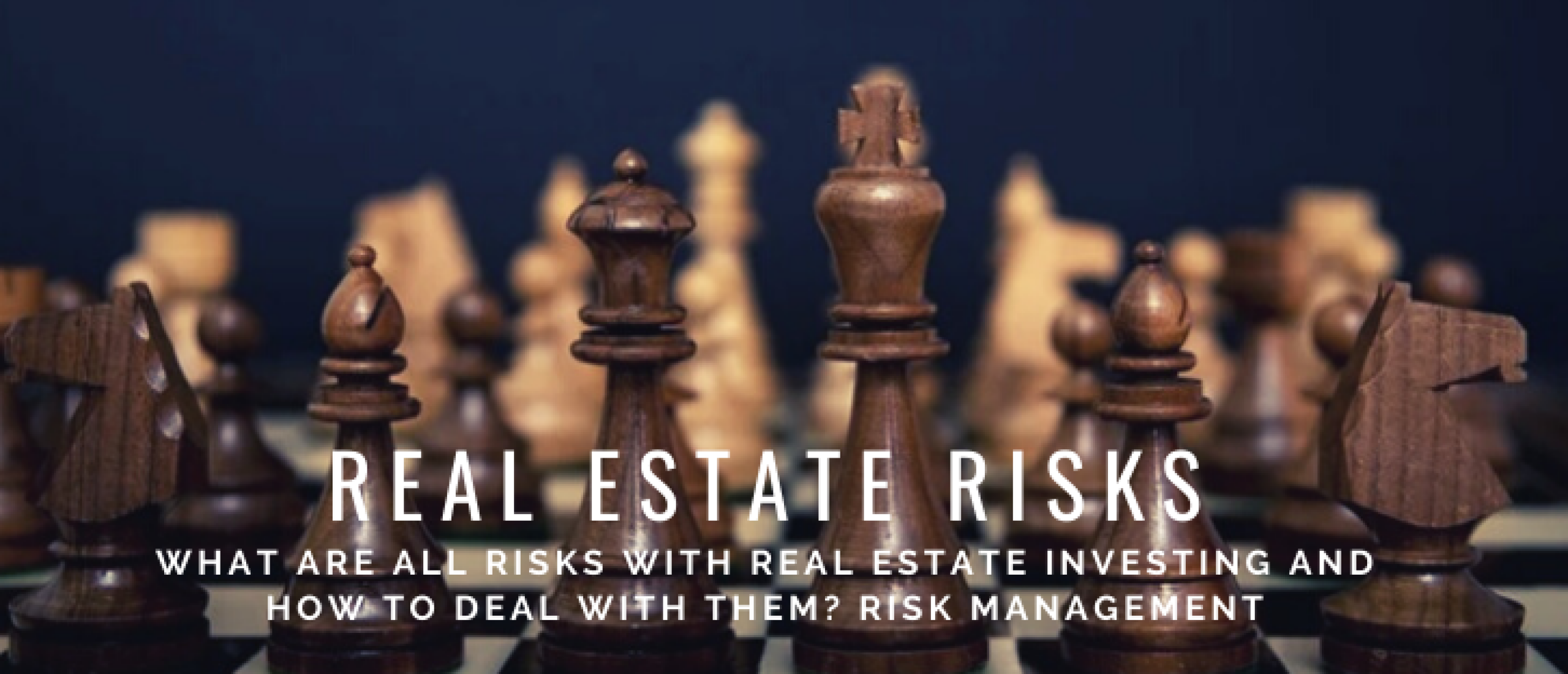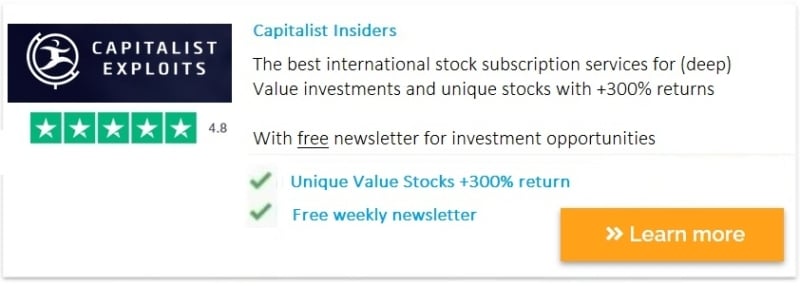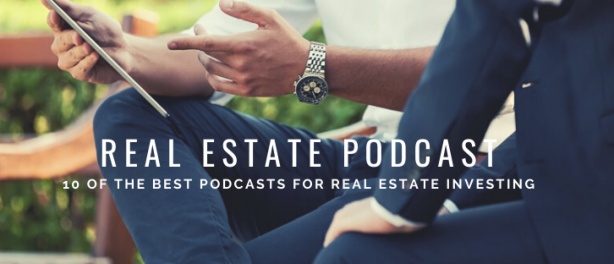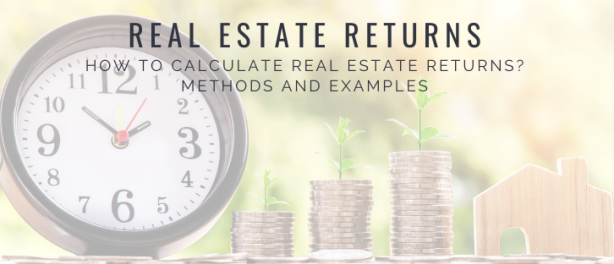Are you thinking about investing in real estate? If so, it's essential to understand the real estate risks and how to manage them. This article will discuss some of the most common risks associated with real estate investing and ways to mitigate them. We'll also cover how to structure your investment for optimal risk management. So if you're ready to learn more about real estate risks, keep reading!
Content
How do you protect yourself against risks with real estate investing?

The most common way to do this is by using risk management strategies. For example, you can purchase real estate through equity partnerships, which will reduce your liability exposure. You can also invest in a diversified set of properties to spread your risk across different markets and geographical locations.
Finally, you can also diversify your real estate investments by purchasing a mix of income-producing and non-income-producing properties.
Another risk management strategy is limiting leverage to less than 50%. This means that you should have at least a 50% down payment on the property before applying for a mortgage, which will reduce your risk exposure.
For example, if you have $100,000 cash to invest in real estate and purchase a property at the listed price of $200,000, that investment will be considered highly leveraged. If the market tanks or your tenant moves out, this could significantly increase your risk exposure. If you only put down a down payment of $40,000, you have a leverage ratio of 80% and only a 20% cushion to absorb unexpected losses. Logically, the risk is much higher in this case.
In real estate investing, the appeal of investing with debt is precisely that. You are using other people's money to create property. However, in the context of real estate risk management, this is where the pitfall lies. Try to find the right balance.
For example: start small and buy one property. If necessary, with little equity. But be sure that you can repay the monthly mortgage if there is (temporary) vacancy. Should the tenant leave, at least you won't be in trouble.
Anyone can grow fast and take excessive risk. In fact, it is even possible to buy property without money. But what do you do if the market collapses and you can't pay back the mortgage debt? Is this risk worth it? In my view, it is wiser to achieve sustainable growth in the long term. Getting rich in the long run is easy, provided the emotional discipline can be maintained.
Which are all real estate risks?

A real estate investor needs to be aware of many types of risks before trying and taking on any deals. These risks can arise from either buying or selling a property, as well as any activity in between those two steps. However, every type of risk has the potential to cause significant problems for investors if not correctly dealt with
1. Market Risk with real estate
Market risk is the risk of the possible changes in the real estate market, e.g., prices dropping over time and areas losing their worth. This can be short-term or long-term, depending on your investing area and how quickly it can change. Do not underestimate this. There are always unforeseen events that can lead to loss of value. Think of intervention by municipality/government or technological developments (such as self-driving cars).
Also, if you are using loans to finance an investment, your interest will go up, and your repayments if your holding period is concise or if the property's cash flow gets too low for you to pay off your loan.
There are a number of practical tips to reduce these real estate risks, including:
- Always buy below market value (this is the first profit)
- Do proper research on the location: invest forward-looking in locations where demand for housing is rising
- Investigate whether a small investment in the house can lead to great added value
- Make good arrangements regarding the mortgage loan
- Find good and reliable tenants who are willing to move in at a high rate
2. Risk of no tenants
Besides market risk, the biggest risk in real estate investing is having vacant properties. At least, if you are investing to generate cash flow. In this case it is necessary that you can pay off the monthly mortgage debt. Vacancy can never be completely prevented, but it can be largely prevented. For this, you can simply enter into a multi-year lease. Do consider carefully the advantages and disadvantages of this.
3. Undisclosed Material Facts
Materially misdescribing a property is an issue because it can lead to disastrous results down the track and significant problems with the law – so it's something you want to avoid.
For example, you could: say there's no flooding issue when there is and then sue you for lying about it, or say there were no toxic mold issues on your property when there was - which leads to health concerns for potential tenants later on.
How do we deal with this real estate risk? Simple: act honestly and transparently.
4. Misrepresentation By A Seller Or An Agent
Misrepresentation by a seller or an agent can happen in several ways, such as: hiding essential issues with the property – example: mold and flooding.
Exaggerating positive aspects example: "perfect location for young people to rent" without mentioning that you're right across from the train station and it's very noisy and using outdated date photos.
5. Fraud - Conveyancing Fraud
Conveyancing fraud happens when an individual misrepresents their identity or impersonates someone else during a real estate transaction (e.g., faking signatures). As a result, the buyer unknowingly buys a property from the wrong person. Conveyancing fraud is widespread in many countries, so it's important always to check that you are buying from the right person or company before signing any documents. In addition, it is essential to carry out due diligence on your lawyer, even if recommended to you.
How to build real estate without too much risk?

Investing in real estate can be intimidating, especially if you're new to the game. Fortunately, it's not difficult to get started, thanks to the widespread availability of free and low-cost tools. While investing in real estate can be a great idea for building wealth, it's also an inherently risky proposition.
As indicated, we can reduce the risk to physical property by investing responsibly. By going slow on purpose. House by house. First build a stable cash flow with a nice real estate portfolio. And in the long run, when it is responsible, always consider buying larger real estate properties (like an apartment complex).
There is also another way to reduce real estate risks.
Rather than investing in real estate yourself, you can outsource your search for properties and manage them through third-party services. If this sounds like something you'd be interested in doing, here's how to get started building real estate without too much risk
1. Reduce the amount of risk you're exposed to
While real estate investing comes with certain risks, you can reduce your exposure in several ways. For example, don't rely on long-term investments when looking for properties. Instead, try to find short-term or medium-term opportunities so that you can recoup your investment if the market changes. An example of this is house flipping. But be aware that this type of activity actually carries other types of (higher) risks.
If you are not yet aware of all the choices you have, read this article on how to start with real estate investing.
2. Spread your investments across multiple areas
If you can't afford to invest in a single area, consider supporting different regions instead. This will reduce some of the risks of investing in one particular area.
3. Invest with a reputable company
One of the best ways to reduce your risk is to work with a reputable company. For example, there are Dutch companies that offer services that allow investors to buy and sell real estate without leaving their homes. This is particularly interesting if you are elderly. You sell your house and rent it back immediately. You receive money, namely the difference between the current mortgage debt and the value of the house. In return, you pay monthly rent.
It is also possible to invest through unlisted real estate funds. In this case you do not obtain ownership yourself, but you spread a lot of risk. The annual dividend is lower (5 - 8%), but the time effort is zero (passive income). And finally, it is also possible to borrow money through specialized real estate financiers.
Real estate risk management: Tips
For completeness, we cover a few more tips related to risk management in real estate:
- Protect yourself and your business through insurance: The best method for protecting your home and your business is to purchase the appropriate coverage, including Commercial general liability (CGL), Property-casualty, Builder’s risk.
- Secure a strong credit profile: Ensure you have an excellent credit score by checking it regularly. In addition to keeping your credit clean, consider eliminating any outstanding high-interest debt.
- Establish a line of credit: Having a line of credit available at all times is essential when working with buyers and sellers who need quick funds
- Beware of real estate investment scams: an experienced real estate agent understands it's essential to protect yourself and your business from scams.
- Risks associated with real estate investments can be managed, so it is essential to use equity partnerships and diversification strategies to limit risk exposure. The critical factor here is to monitor the market for changes in prices and interest rates, which can help you manage your risk exposure.
What are the risks in real estate funds and REITs?
This article focuses primarily on the risks surrounding real estate. Or, in other words, buying physical real estate. But there are other forms that we have briefly discussed. One of them is real estate funds. And among real estate funds, we distinguish between unlisted and listed funds. In particular, the latter give higher risk and require more knowledge and experience from the investor.
The risks that are involved in real estate funds and REITs are (not exhaustive):
- Properties are not traded on public exchanges. For example, very few REITs are subject to the same regulatory scrutiny as publicly traded companies.
- High debt levels are standard in REITs, making them riskier than other types of equities. Exposure to interest rate and property risk - both of which can increase the chances for REITs
- Property values are affected by the business cycle.
- Property values can be affected by changes in national and local economic conditions
- Management may act inadequately or unethically
- Specific to REITs: investor may make wrong purchases, such as paying the top price (relative to financial valuation)
Conclusion about Real Estate Investing Risks and Risk Management
Investing in real estate can be a great way to build wealth over time, but it does contain real risks to money loss. For example, the consequences of poor risk management are often greater than with stocks. With stocks, you can lose the deposit. With real estate, you can lose more.
A real estate investor needs to be aware of many types of risk, including credit, market, and interest rate risks. By understanding these risks and using risk management strategies, you can reduce your exposure and improve your chances of success. The most common way to do this is to use risk management strategies, such as conducting proper research, diversification and responsible risk management.
By the way, don't get discouraged! Real estate is an excellent and relatively value stable long-term investment. It is possible to become prosperous thanks to discipline, simplicity and risk management. Choose the patient yet slower path of sustainable financial success. Don't try to pull out all the stops to get rich quick. This will turn out wrong sooner or later.




![Learning Real Estate Investing: Free Explanation Beginners [2022].](https://media-01.imu.nl/storage/thehappyinvestors.com/4861/responsive/6230915/learn-real-estate-investing-2560x1100_614_264.png)


![How to Start With Real Estate Investing? [2022] Beginners Guide](https://media-01.imu.nl/storage/thehappyinvestors.com/4861/responsive/5859640/how-to-start-with-real-estate-investing-2560x1100_614_264.png)
